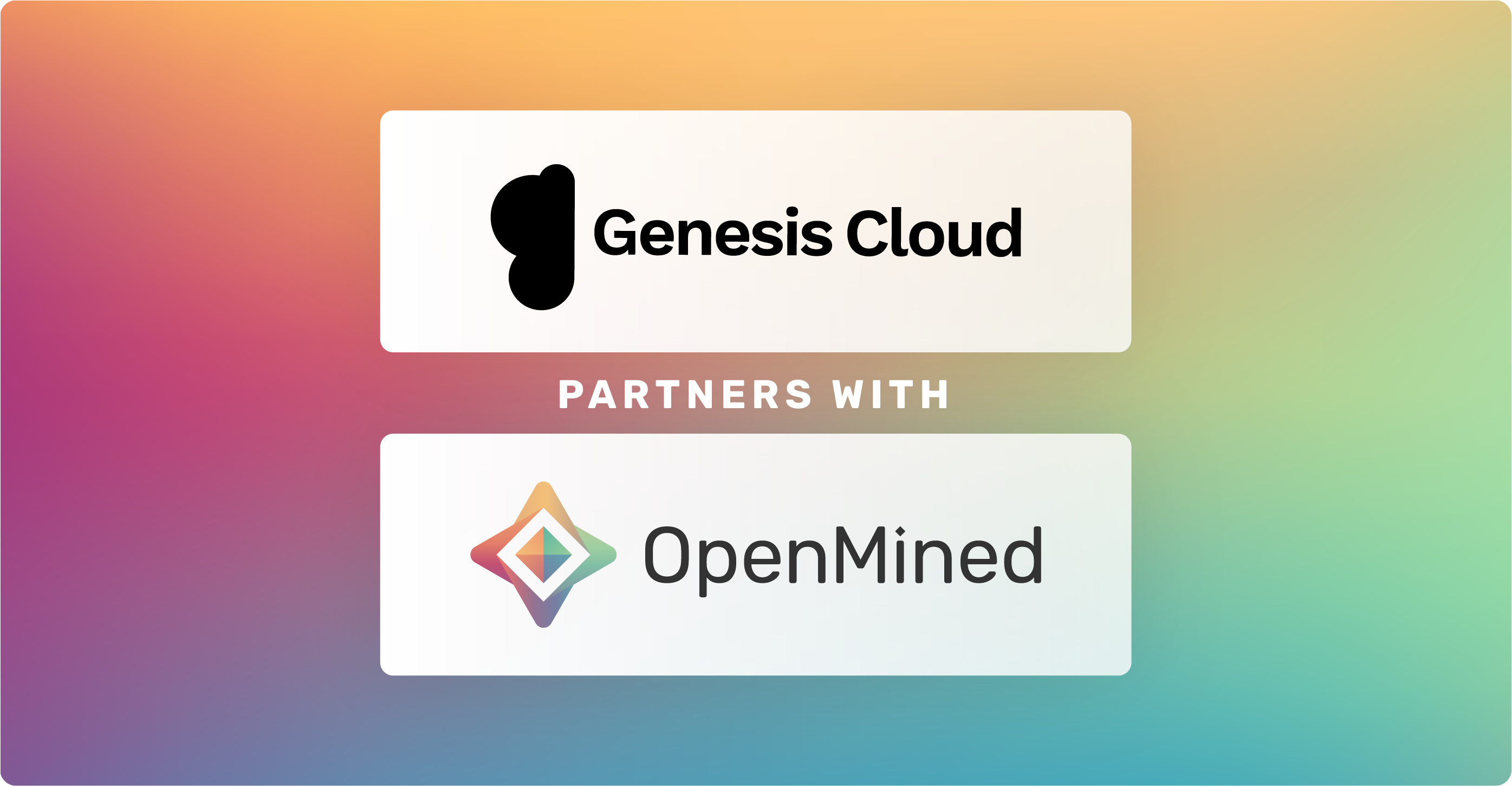The mission at OpenMined is to make the world more privacy-preserving by lowering the barrier-to-entry to privacy-preserving technologies through free, open-source software and education.
Today we are excited to announce the partnership between OpenMined and Genesis Cloud (Twitter) to sponsor cloud infrastructure to power OpenMined projects and research as well as tightly integrate with the OpenMined ecosystem.

OpenMined's goal for 2020 is for our libraries to be deployed in real world privacy preserving machine learning problems that go beyond small demonstrations. Naturally, developing and deploying distributed machine learning solutions requires infrastructure and GPU compute power. Setting up cloud infrastructure is often not only costly but also increases the barrier-to-entry for the community to build and test solutions at scale.
This partnership will provide OpenMined researchers with sponsored cloud resources and drive the development of OpenMined's cloud use cases like a PyGrid cloud integration.
Genesis Cloud is a young cloud company focusing on compute heavy applications like machine learning. Its mission is to make cloud computing affordable for everyone, simple, fun to use, and green. Its data centre in Iceland is powered by 100% renewable energy.
Genesis Cloud happily offers every member of the OpenMined community 333 free GPU hours when signing up using this link.
If you are working on an official OpenMined project that requires more cloud compute power you can send a request to support@genesiscloud.com or reach out to Andrew or your team lead on Slack.
If you have questions regarding Genesis Cloud or ideas for features that would support any of the OpenMined projects you can also reach out to Julian Sprung from Genesis Cloud in the OpenMined Slack.
As a first step towards building a PyGrid Genesis Cloud integration we have created a proof of concept Jupyter notebook that allows you to create a PyGrid Network on Genesis Cloud in a few lines of Python. Once the PyGrid Network is up and running you can utilize PySyft to experiment with private data analysis, secure multi party computation, federated learning and more.
You can find the code here. Reach out to Benedikt Heyl on Slack with questions or ideas for the next steps.





